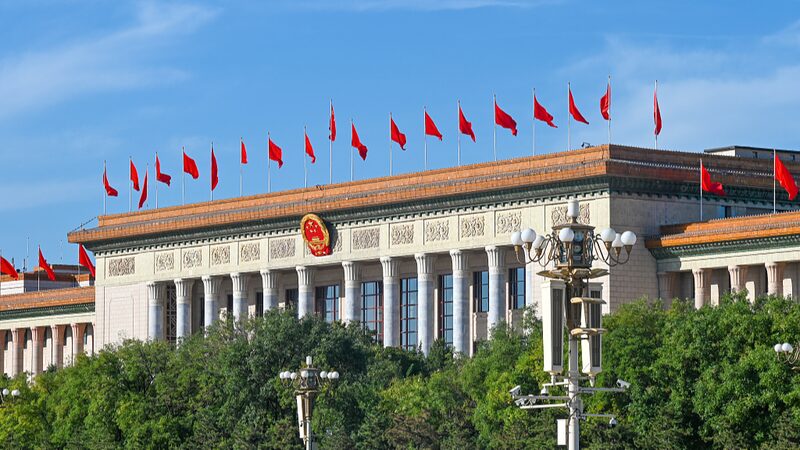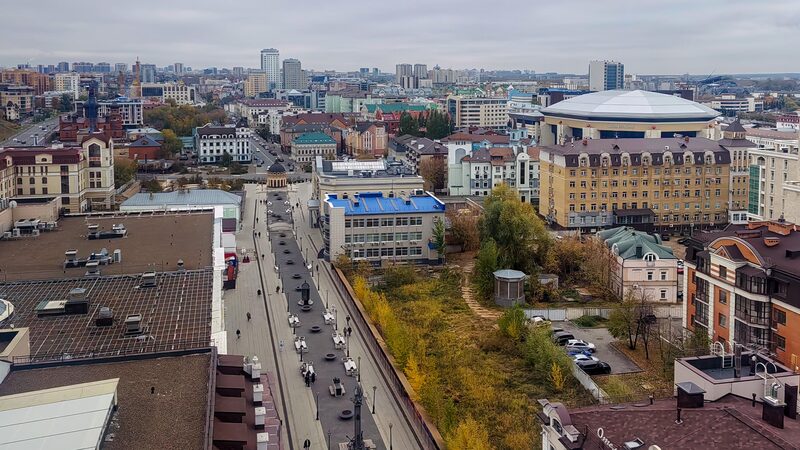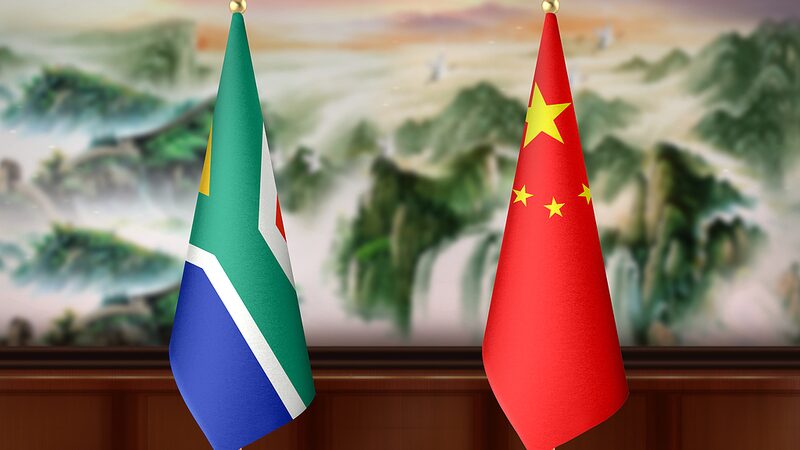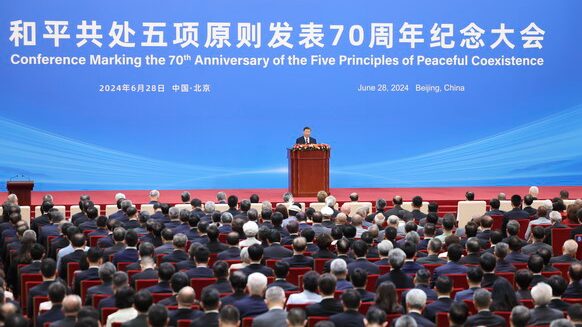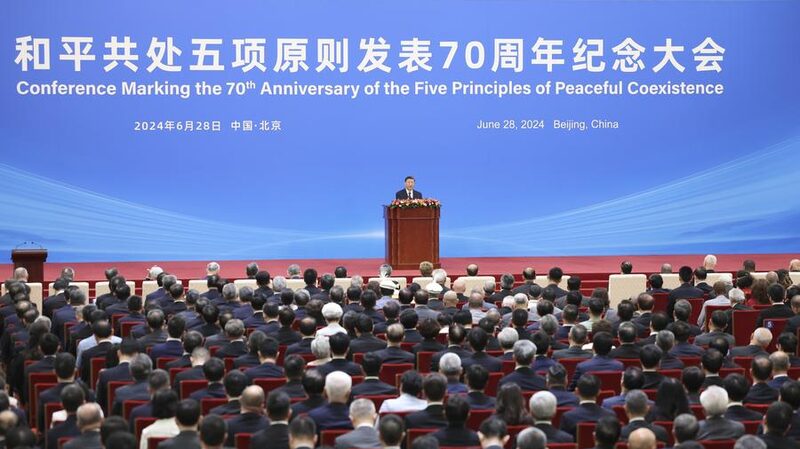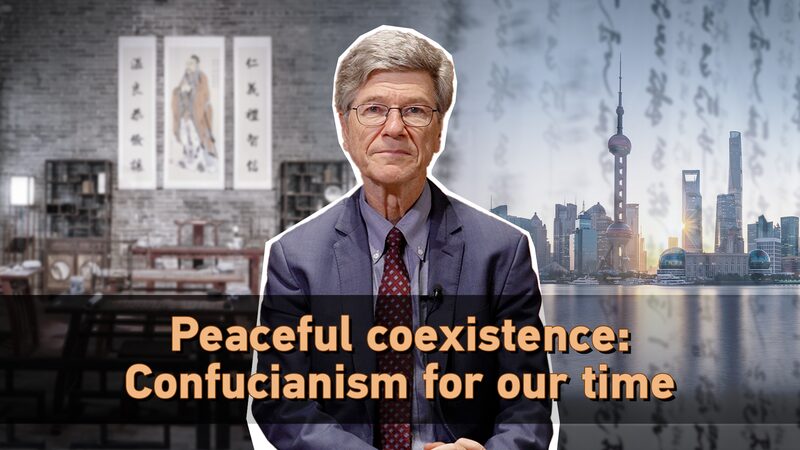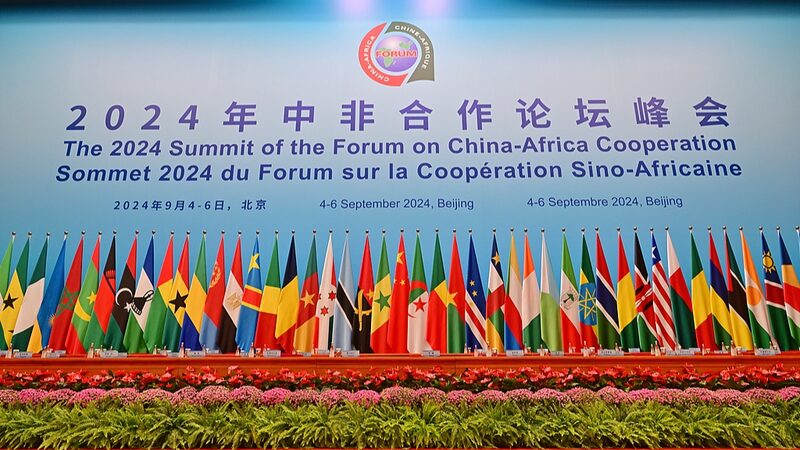Beijing, China — Global leaders and experts gathered in Beijing on Friday to celebrate the 70th anniversary of China’s Five Principles of Peaceful Coexistence, highlighting their enduring significance in promoting world peace amid current global challenges.
The Five Principles, introduced by China seven decades ago, encompass mutual respect for territorial integrity and sovereignty, non-aggression, non-interference in each other’s internal affairs, equality and mutual benefit, and peaceful coexistence. They have been lauded as foundational guidelines for international relations, especially among developing nations.
Kgalema Motlanthe, former president of South Africa, emphasized the relevance of these principles in today’s world. Speaking to China Media Group (CMG), he remarked, “Current trade wars among countries are unnecessary and poison global governance. Against such a backdrop, China’s Five Principles of Peaceful Coexistence are a solution that underscores the crying need for peace.”
Nong Duc Manh, former General Secretary of the Communist Party of Vietnam Central Committee, praised the principles’ vitality and their role in shaping international law. “After 70 years of application in international relations, the Five Principles have demonstrated their strong vitality and become a basic foundation and standard for international relations and law, helping to protect the rights of countries the world over,” he stated.
Kao Kim Hourn, Secretary-General of the Association of Southeast Asian Nations (ASEAN), highlighted the importance of these principles in regional stability. “Peace and stability are the prerequisites for sustainable development and prosperity in our region,” he said. “As we strategically navigate a complex geopolitical landscape, it’s essential to uphold the principles of mutual respect, non-interference, peaceful resolution of disputes, and continue enhancing mutual trust and understanding through dialogue and diplomacy.”
Chen Bo, President of the China Institute of International Studies, reflected on the historical significance of the principles. “The Five Principles of Peaceful Coexistence provide a historical answer to the question of how to maintain post-war peace and stability globally while achieving peaceful coexistence among nations,” she told CMG. “In recent years, China has proposed building a community with a shared future for mankind. This represents China’s contemporary answer to the significant question of the kind of world to build and how to build it.”
Massimo D’Alema, former Prime Minister of Italy, expressed his support, stating that the principles convey that countries with different political systems not only can but must coexist peacefully. He affirmed, “The Five Principles remain a pillar of peace and hold all the possibility to build a common destiny for humanity.”
Mulatu Teshome, former President of Ethiopia, noted that building a community with a shared future for mankind reinforces the Five Principles. “The principles help build a partnership in which countries have to respect each other, creating consensus. This has to be the guiding principle of contemporary international relations,” he said.
Sourabh Gupta, senior policy specialist with the Institute for China-America Studies in Washington D.C., was quoted by the South China Morning Post in Hong Kong, stating that the Five Principles have become part of customary international law and are “ever more relevant” with the rise of the Global South. He noted, “The message embodied in the Five Principles is certainly alive and well; it has not lost its appeal.”
The conference brought together around 600 participants, including former national leaders, representatives of international and regional organizations, diplomatic envoys from over 100 countries, and Chinese and foreign experts, scholars, media, and business representatives.
Reference(s):
Intl experts say China-proposed five principles help world peace
cgtn.com
